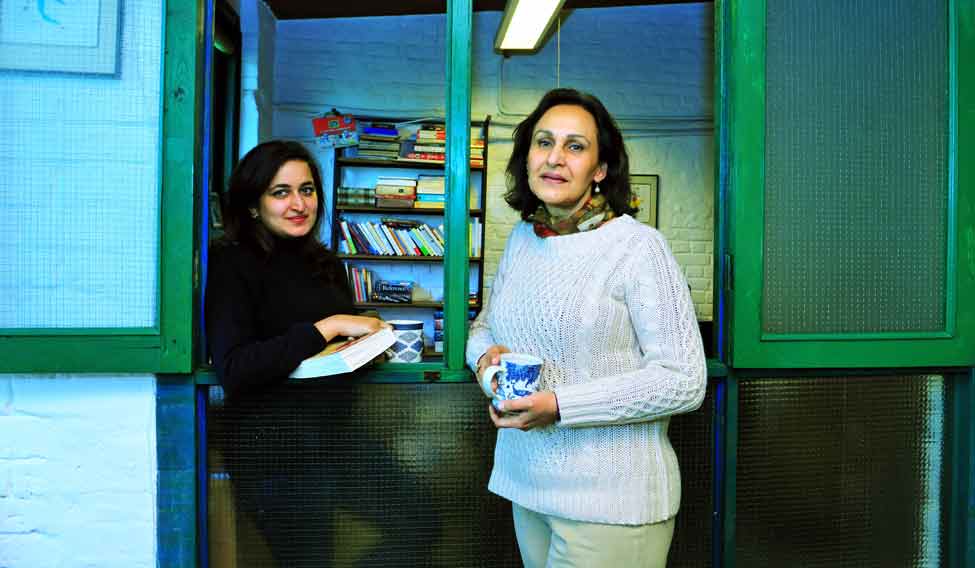The staircase to the second-floor office of entrepreneurs Poonam and Priyanka Malhotra in south Delhi looks symbolic of Indian women’s uphill struggle to reach the top. Whether it is the floral patterns adorning the walls of the stairway or the tastefully done up interior, every bit of Full Circle, a publishing house and bookstore chain, carries a woman’s touch. But, for this mother-daughter duo, creating that impression on the Indian publishing industry was not easy.
What started as a shaky venture in 1999 with little support from the male-dominated publishing industry now stands tall. In 14 years, the venture has witnessed two generations—both in business environment and the way women are treated in India. “Men did not take women seriously back then,” recalls Poonam, the founder of Full Circle. Undeterred, she started Café Turtle, a chain of upscale book cafes, in 2000. “They dismissed women as if we did not exist,” she says, as Priyanka, 30, peeps out of a huge window dividing their cabins. “Some men in their 60s and 70s in the industry still do that.”
Priyanka joined the company in 2007 as director, but quickly realised that the entry of a boss’s daughter in the business is perceived differently by the male members of the organisation. “The son earned the right while the daughter was perceived as someone who wanted to have a good time,” says Priyanka. But in the last couple of years, equality and respect for women have grown significantly.
“Perhaps, if I had joined now the scenario would have been different,” she says. “The publishing sector is now women-dominated. They are extremely supportive of each other. You could reach out to anyone for help, which makes it a comfortable place to be in,” explains Priyanka.
But during Poonam’s time, forget a support group, asking for help was a strict no-no. “It reinforced others’ opinion that women are weak and vulnerable,” she says. So, it was a relatively tough ride unlike now. Another remarkable change, says Poonam, is today’s women’s increased level of awareness, confidence and competitiveness. “They know how to deal with any kind of situation and get their work done, which we didn’t,” she says.
Priyanka attributes it to education and exposure among women. “Today’s woman has seen the other side of the world as well, where they are not seen through gender glasses but as fellow human beings. Now they want the same back home,” she says. They are asking questions instead of simply accepting social norms.
Poonam, however, sees this as a natural progression in the evolution of women's empowerment in India. “It is like climbing one step after the other,” she says. “Now that women can go to work, they are asking for equality and respect at the workplace.”
The 52-year-old, however, raises concerns about young women taking too many responsibilities and challenges. “We were probably less stressed,” she says. But Priyanka says that with the power of being able to make a choice and have a voice in all matters of life, this generation feels secure and self-sufficient.






